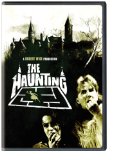Some people are in this field for fame and/or fortune. I’m not one of them, and I hope that you’re not.
I know absolutely no one, personally, who’s getting rich as a paranormal investigator. In fact, most TV stars that I know… they have day jobs.
However, most of us would prefer to work full-time in the paranormal field, rather than ask people if they’d like fries with that order.
So, here’s a summary of the main ways to earn a living as a paranormal expert.
They’re not the only ways, just the usual ones.
TV- and movie-related work
Fame: Fame is possible, and perhaps likely. Infamy is a risk as well. It’s all in how you’re edited by the producers and the network. Then there’s the makeup and lighting, what your co-stars say about you, whether or not you’re ridiculed on social media, evening talk shows, and many other variables.
Fortune: Don’t expect to get rich from documentary-style movies or reality TV.
Warning: Absolutely anyone can film a pilot for a TV show. Getting the show picked up by a network is only slightly more likely than being struck by lightning, unless you have talent, a great angle, and truly great connections. So, if someone wants to include you in their TV pilot, don’t quit your day job.
Typical work opportunities in TV and movies:
- Be a regular star on a TV show. (Most guests on reality shows aren’t paid, and sometimes don’t even get travel expenses.)
- Be a consultant for a TV show or series, or a movie. (Get everything in writing, signed and notarized, on paper.)
- Write for TV or movie productions. (If you make the right connections, you can build a career and have fun at the same time.)
- Develop a fan site about the TV show or movie, and find ways to monetize it. (This is tricky. I tried it with one show and didn’t earn a cent.)
Writing books and articles
Fame: How famous you become depends on how good your writing is, and how well you promote yourself. Even if you’re published by a major publishing house, do not expect them to organize book signings or provide PR for you.
However, if you write well and you’re willing to work hard, you can achieve moderate fame with your writing.
Fortune: If you’re working for a traditional publisher, it’s possible you’ll have a best-seller and earn lots of money. It’s about as likely as winning the lottery. Books that sell for $9 – $15 usually earn their authors about 25 cents per copy sold. (That’s what I’ve earned and what Jack Canfield mentions in the video, The Secret.)
You can usually do much better as an independent publisher, but you may have to do more work on the book and on your own PR and distribution.
Generally, I don’t recommend any publishing house that charges a fee to publish your book. Go “indie” instead.
Recommended resources:
- If you’re writing nonfiction, Joanna Penn. (She also offers good fiction advice.)
- If you’re writing fiction, Chris Fox. (Possibly more than you ever wanted to know about writing fiction, in weekly videos and more. But, if you’re writing “ghost stories,” he’s worth learning from.)
If you’re writing stories for book anthologies or for magazines, your writing skills and reputation make the difference between earning at least minimum wage… and earning nothing.
My favorite book for freelance journalists: The Renegade Writer by Linda Formichelli. Good writers earn three figures per magazine article they sell. Really good writers can earn four figures per article. (When I write for anthologies, I’m well paid.)
Writing articles for online use usually pays $2 – $15/article, or more if you’re really good at writing or you’re a celebrity. Writing for magazines, add at least a zero to the end of those numbers.
The biggest demand for ghost-related writers is for Halloween-related books and articles.
Tip: If you write books for traditional publishers, you may not see your work in print — or earn a cent from it — for six months to two years.
If you write for magazines, allow them at least three months’ lead time to publish your work. In other words, pitch Halloween articles no later than April or May.
Sometimes, you’re paid when you deliver the work. More often, you’ll be paid once the magazine is actually on the newsstand, or 30 days after it’s published.
Typical opportunities for writers:
- Writing books, including nonfiction, “ghost stories,” and novels.
- Articles.
- Screenplays.
Photography
Fame: Like writing and art, your fame potential depends on your skill and how well you promote yourself. Luck and novelty can also be factors. However, keep in mind: If you walk up to a stranger on the street and say, “Quick, name one ghost photographer,” they’ll probably stare at you before mumbling some TV star’s name.
Fortune: You can earn a good living as a freelance photographer if you’re willing to work hard. Halloween-related photos (ghost pictures, cemetery photos, haunted house pictures) sell well year ’round to book and magazine publishers. You’ll want a copy of the latest edition of Photographer’s Markets to learn who’s buying what, and how much they’re paying.
Typical opportunities for photographers:
- Illustrate books and magazines.
- Illustrate promotional material for paranormal events and speakers.
- Sell your photos via stock photo services, online. iStockPhoto.com is one of many.
Videos have a narrower audience, but you might get involved in filming a TV pilot (get paid up-front, not after the show sells) or create your own videos of haunted encounters.
Appearing at paranormal events and conferences
Fame: The bigger the event, the more famous you’ll seem. However, be selective about the number of events you speak at. (Avoid over-saturating the market.) Try to get your name and photo on the event’s promotional materials.
Fortune: Unless you’re already a star, or selling your own books at the event, paranormal events pay little or nothing. If you’re reimbursed for travel expenses and/or your hotel room, that’s great… but don’t count on it.
Warning: Find out who’s on the schedule with you before committing to any event. If many of the speakers have poor reputations, it can reflect badly on you. (“Birds of a feather…”)
Don’t make firm travel plans until you’re sure the event will happen. About 50% of the events that book me, postpone or cancel the event altogether.
Tip: Big events at major venues — and those hosted by major celebrities in this field — rarely cancel, even if they’re taking a big loss on expenses. Conferences organized by local groups have a higher cancellation likelihood.
Putting on a paranormal event or conference
Fame: Until your event has been successful for several successive years, your own events won’t make you famous… unless you’re already a celebrity in this field.
One bad event, or someone griping about how your ran the event, can be very damaging.
Fortune: Unless you’re very lucky, you’re likely to lose money putting on your first event (or two). After that, it’ll depend on the economy, when and where the event is, the quality of your speakers and activities, and how much competition you have (saturated field).
Warning: Hotels often ask for non-refundable deposits, and their meeting room prices may shock you. Never rely on filling up hotel rooms (sleeping rooms) to offset some or all of your meeting room expenses.
It’s better to be pleasantly surprised with a profit than devastated by four-figure (or higher) losses.
Set a firm “no refunds” date — usually the date that you have to give the hotel the deposit — and stick to it. People will call you with the most amazing, convincing tall tales excuses, usually involving themselves or a family member being diagnosed with cancer.
Also have a “Plan B” ready if your biggest celebrity cancels at the last minute. It happens. Often.
Investigations
Some people charge money for private investigations. Most people — including me — don’t. In fact, most of the bigger celebrities don’t charge a cent, and some don’t even ask for travel expenses.
Fame: If you produce extraordinary results, you might build a reputation as a great paranormal investigator. In 80% or more of your cases, the home owners will be reluctant to admit that they even consulted you.
Fortune: In most cases, there’s no money in investigating. I’ve talked about this in other articles. Some clients have already lost their jobs due to the stress of the hauntings. Other people won’t take you seriously unless you charge a fee. The latter group is diminishing rapidly, because they see ghost hunters on TV conducting free investigations.
If you consult for a business — for example, helping realtors who need to know if a home or business is haunted — you’re more likely to be paid. Home owners rarely pay for investigations.
Tip: If you expect to charge money, even just travel expenses, you must have professional-level experience in this field — probably more than 100 real, formal investigations — and a list of references for potential clients to check.
It’s prudent to have liability insurance for your team. If a Ming vase is broken during your investigation, the client won’t care that it was poltergeist phenomena, and not your fault.
Get rich quick?
 There are no get-rich-quick paths in this business. Though some people have catapulted themselves to fame and/or fortune, few remain there for very long.
There are no get-rich-quick paths in this business. Though some people have catapulted themselves to fame and/or fortune, few remain there for very long.
Success in any field — including this one — requires hard work, constant study, and immense integrity.
If ghosts and hauntings fascinate you, it’s probably best to keep your day job and pursue this field as a hobby, at least for the first few years.
In the meantime, keep all of your photos. Maintain a detailed journal of your investigations. Experiment with new ideas, theories, investigation tools and techniques. All of them may be extremely valuable once you are ready to enter this field as a full-time professional.
Focus on one niche rather than trying to be an all-around ghost hunter. Sure, you’ll need to know a little about every facet of ghosts and hauntings. However, career success comes from identifying your strengths and greatest interests, and developing a niche that’s uniquely yours.
Photo credit: Michael Faes, Switzerland


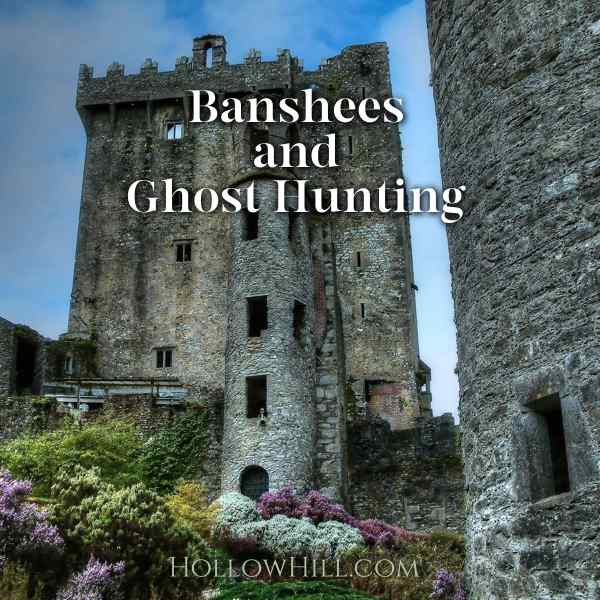
 Banshees… should ghost hunters look for them? And if you do, could you even find one?
Banshees… should ghost hunters look for them? And if you do, could you even find one?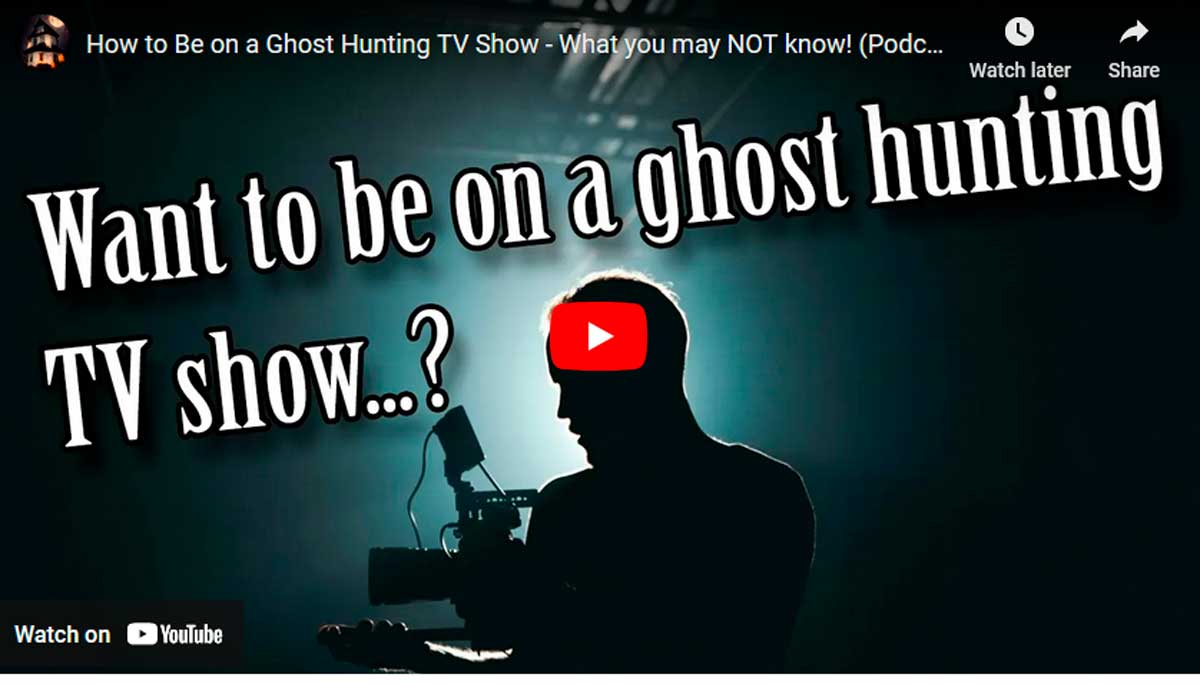

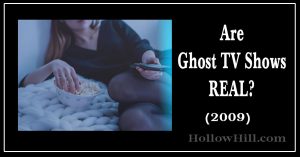
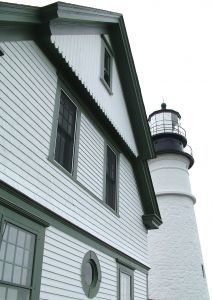 TV shows don’t represent how many houses we visit that aren’t haunted.
TV shows don’t represent how many houses we visit that aren’t haunted. 
 There are no get-rich-quick paths in this business. Though some people have catapulted themselves to fame and/or fortune, few remain there for very long.
There are no get-rich-quick paths in this business. Though some people have catapulted themselves to fame and/or fortune, few remain there for very long.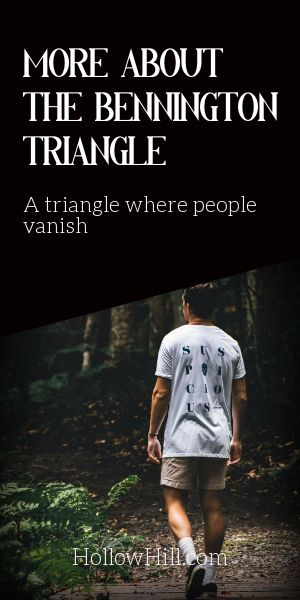 The “triangle” phenomena are interesting to study. The most famous of these locations is, of course, the Bermuda Triangle.
The “triangle” phenomena are interesting to study. The most famous of these locations is, of course, the Bermuda Triangle.